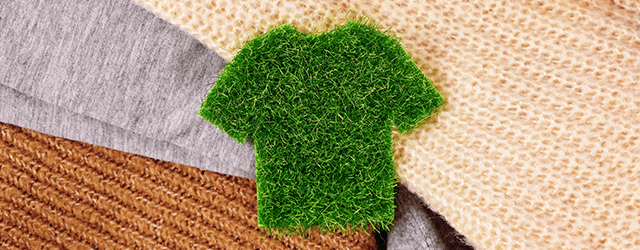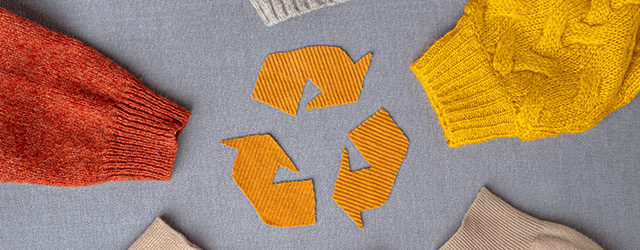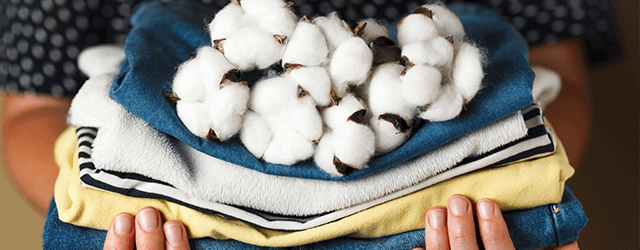Blog
The guide to eco-responsible wardrobes and ethical fashion
An eco-responsible wardrobe for ethical fashion
26 JANUARY 2023

You've decided to make your wardrobe more eco-friendly and ethical! But you don't necessarily know where to start. What is ethical fashion? What advice do you need to follow to make your wardrobe more respectful of the environment and your new values? Here's everything you need to know before getting started, along with some useful and practical advice.
What is ethical fashion?
Ethical fashion is fashion that is generally more respectful of the environment, humans and animals. The morality of ethical fashion is expressed in different ways.
Ethical fashion means, among other things :
- more organic, resource-efficient and/or recycled materials (cotton, wool, but also nylon or acrylic) ;
- respect for the rights of the workers involved in making the clothes (wages, working conditions, etc.);
- workers are paid a fair wage for the work they do;
- refusal to use materials obtained through animal suffering;
- fewer collections and lower production (slow fashion rather than fast fashion);
- selling at a fair price, one that allows all stakeholders to be remunerated;
- compliance with certain standards;
- working with private individuals or with people who are far from employment and/or in difficulty;
- producing as locally as possible;
- improved product traceability and transparency;
- reducing packaging and/or using recycled or recyclable packaging.
In short, ethical fashion is about doing better! It aims to significantly reduce the environmental footprint and takes into account human well-being and dignity. Most brands that want to be more ethical try to adopt as many measures as possible. It's difficult to be perfect in every way.
> See also: How can you tell if a brand is ethical?
Did you know?
The development of ethical fashion is a major challenge for the coming decades. The textile industry (clothing and footwear) is currently the third* biggest water consumer in the world and emits almost 4 billion tonnes ofCO2 equivalent per year.
How can you have an eco-responsible wardrobe?
Having an eco-responsible wardrobe is highly commendable. There are a number of ways you can go about it: reduce the proportion of fast fashion clothes and increase the proportion of slow fashion, reduce your consumption or choose the brands you buy from more carefully.
Buy quality clothes
Taking a step towards ethical fashion also means choosing clothes that will last longer. As far as possible, we should avoid fast fashion brands. They renew their collections too often over the course of the year, and the quality of the clothes they offer is often mediocre. They tend to warp and get damaged easily.
Whenever you have the chance, turn to an ethical clothing brand. The quality is better and the products are designed to last. Quality comes down to the materials used. The use of natural materials and fibres, such as organic cotton or linen, should be taken into consideration. Look out for labels too.
Taking care of your clothes
An eco-responsible wardrobe is one that you keep for a long time. That means taking care of it every day. Discover 20 useful tips that are easy to apply every day:
- sort clothes according to colour ;
- follow the washing instructions on the labels and wash at a low temperature whenever possible (hand wash, temperature, cold wash, etc.);
- turn your clothes inside out and zip them up before putting them in the washing machine;
- reduce the frequency with which you wash your clothes (except for underwear and sportswear, of course!);
- don't overload the washing machine to ensure that your clothes are washed properly and to avoid friction;
- opt for liquid detergent as it contains no bleaching agents, unlike washing powder;
- clean stains as soon as they appear;
- use a washing net for delicate clothes;
- use steam irons instead of irons (and if you do use an iron, turn the clothes inside out);
- brush clothes with a special brush and remove lint with a lint-free razor;
- avoid tumble-drying and opt for air-drying;
- dry black and coloured clothes out of direct sunlight to prevent discolouration (white clothes are safe);
- choose hangers that are appropriate for the type and weight of each garment;
- fold jumpers instead of hanging them up;
- repair clothes that can be repaired or have them sewn by a seamstress;
- install moth-proofing devices in your wardrobes (lavender sachets, for example);
- air your dressing room regularly to combat damp and odours (take clothes out, shake them out, unfold them!);
- dye your clothes to give them a new colour instead of discarding them when they become dull;
- store fragile or precious clothes in covers;
- protect your clothes from light.
It may seem like a lot at first, but over time you'll develop a habit of doing things without even realising it!
Support ethical and eco-responsible brands
If you want to consume better, it's a good idea to dress in ethical clothing brands . These brands generally make numerous commitments to the environment, offer "green" collections and show greater respect for humans and animals. Buying clothes from these brands allows you to contribute to their survival and development. The more they gain ground, the more their values will be heard and seen by the general public.
There are an increasing number of ethical fashion brands on the French, European and international markets. Don't hesitate to look online when you need to update certain items in your wardrobe. You're bound to find what you're looking for!
> See also: Our eco-responsible materials and labels
Made in France / Europe clothing
Ethical fashion also means limiting the distance between the place of manufacture and the end customer. Whenever possible, choose brands whose clothes are designed or made close to home. This will limit the carbon footprint of the garment and avoid long-distance journeys.
And the benefits don't stop there! Made in France / Europe:
- is more respectful of people. Work in the workshops is more strictly regulated by law, and child labour is outlawed, for example;
- promotes the local economy
- includes more environmental standards;
- sometimes contributes, on its own scale, to preserving certain skills.
Did you know?
Elora manufactures certain garments in France and strives to increase the number each year.
*Source : Ademe
Mais aussi...
Nos autres articles

Using less clothing
29 December 2022
Eco-responsibleHave you been wondering about your clothing consumption for some time now, and want to act...
Lire cet article
How do I choose eco-responsible clothing?
05 July 2022
Eco-responsibleOur tips for choosing eco-responsible...
Lire cet article
Eco-responsible fashion: a sustainable choice for Elora
17 May 2022
Eco-responsibleEco-responsibility is a key concern for many companies. Elora is part of this philosophy...
Lire cet article
Why choose an eco-responsible brand?
02 March 2022
Eco-responsibleFor some time now, you've been feeling the urge to consume better, particularly when it comes...
Lire cet article




